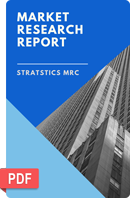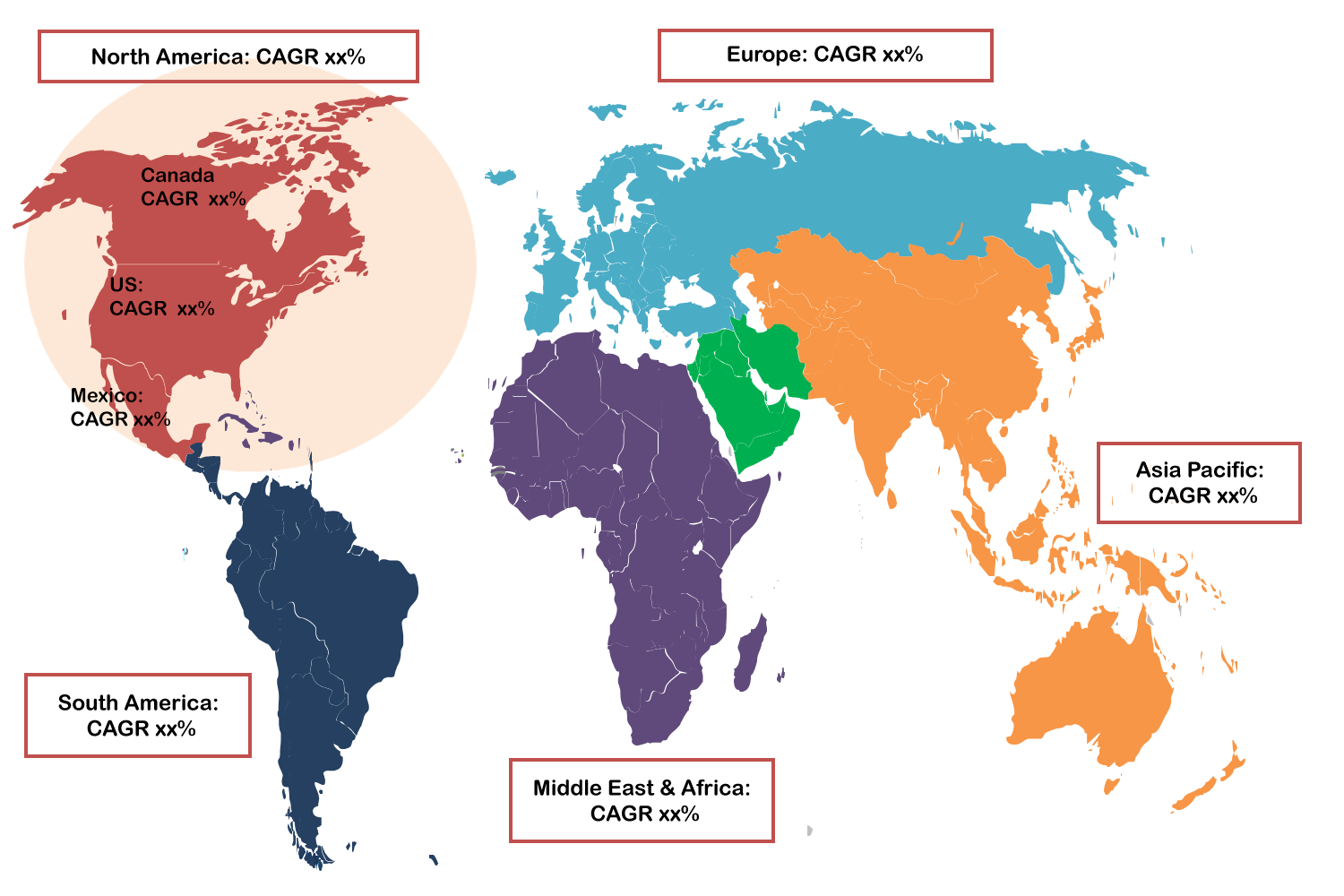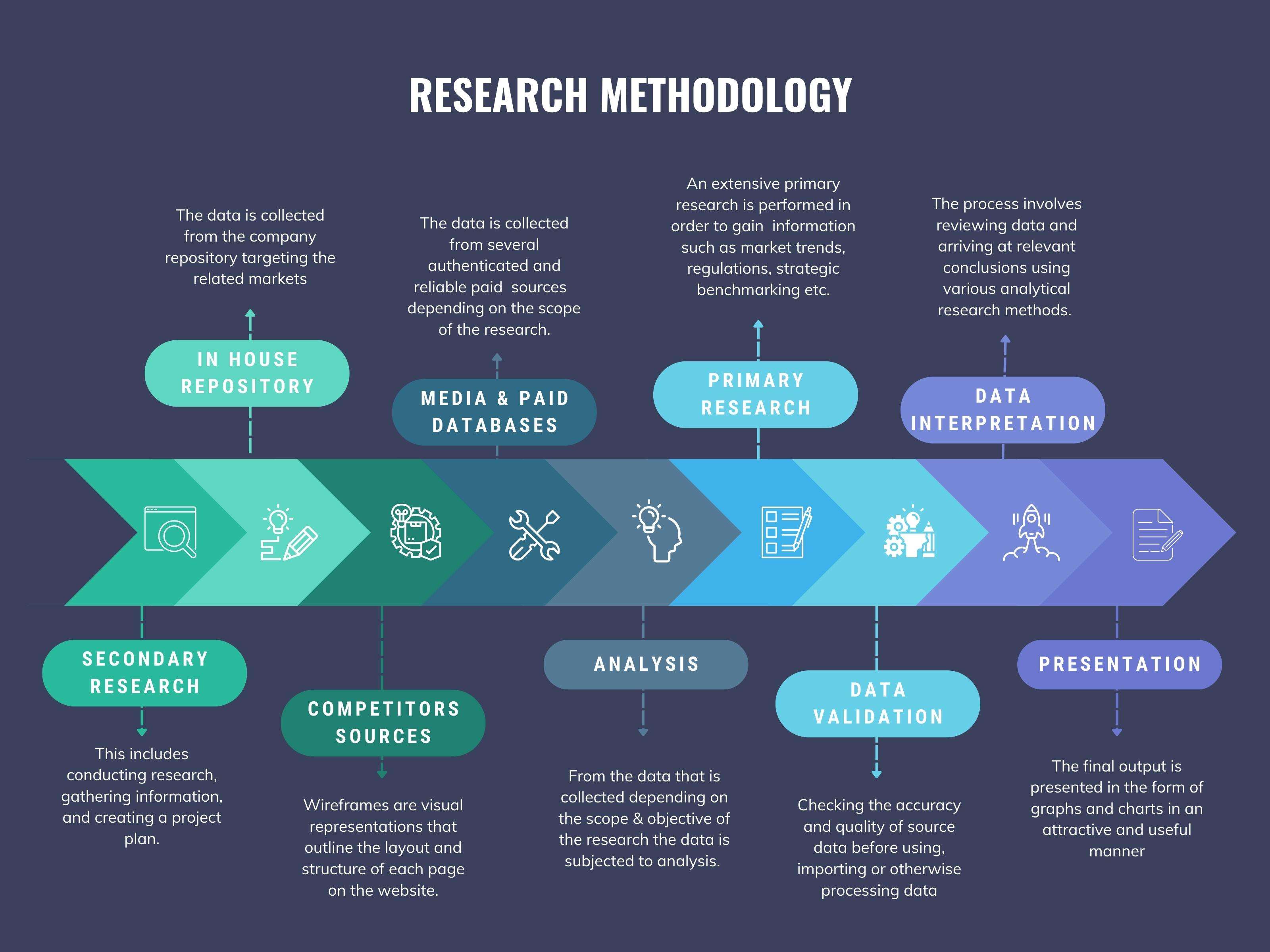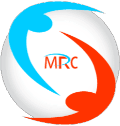
Hot Briquetted Iron Hbi Additives Market
Hot Briquetted Iron (HBI) Additives Market Forecasts to 2030 - Global Analysis By Product Type (Binder, Fluxing Agents, Carbonaceous Materials, Reducing Agents, Antioxidants/Stabilizers, Alloying Elements, Deoxidizers, Desulfurizers and Other Product Types), Additive Type, Form, Production Method, Composition, Application, End User and By Geography

According to Stratistics MRC, the Global Hot Briquetted Iron (HBI) Additives Market is accounted for $4.2 billion in 2024 and is expected to reach $6.8 billion by 2030 growing at a CAGR of 8.3% during the forecast period. Hot Briquetted Iron (HBI) Additives are materials incorporated into the production process of HBI to enhance its properties, such as increasing its efficiency in steelmaking and improving the overall quality of the final product. HBI is a solid form of sponge iron produced by compressing direct reduced iron (DRI) at high temperatures to form dense, transportable briquettes. The additives are designed to optimize the production and use of HBI, which is an intermediate product used primarily in electric arc furnaces (EAF) for steel production.
According to US News, over half of the packaged food and beverage products purchased by US households in 2019 contained three or more additives. By 2023, approximately 60% of the purchased foods included coloring or flavoring agents, preservatives, and sweeteners.
Market Dynamics:
Driver:
Increasing demand for high-quality steel
The growing need for premium steel in a variety of industries, such as infrastructure, construction, and automotive, is a major factor propelling the market for HBI additives. HBI additives are essential to improving the metallurgical characteristics of iron as industries work to improve product performance and durability. By optimizing properties including strength, density, and chemical composition, these additives make HBI a desirable feedstock for electric arc furnaces (EAFs). The need for HBI and its related additives is further fuelled by the growing preference for EAF steelmaking, which is motivated by its flexibility and environmental benefits.
Restraint:
Fluctuating raw material prices
For manufacturers and end users, fluctuating raw material costs in the market for Hot Briquetted Iron (HBI) additives pose significant challenges. Price fluctuation makes it harder for suppliers to maintain steady pricing and profitability because it raises production costs. Supply networks may be disrupted by this uncertainty, which could result in delays and uneven product quality. Investment decisions are also impacted since stakeholders may be reluctant to commit to new projects when costs are uncertain. Higher prices could make HBI additions less appealing to end users than alternatives. Overall, these variations impede market expansion, acceptance, and planning in steelmaking processes that are influenced by price.
Opportunity:
Expanding global infrastructure projects
The need for premium steel is being driven by enormous investments in energy, transportation, and building infrastructure, especially in emerging economies. HBI additives are essential for improving steelmaking processes' efficiency and guaranteeing constant quality to satisfy the demanding specifications of infrastructure applications. Green building techniques, government programs, and urbanization are all contributing to this trend's acceleration. Furthermore, the use of sustainable building materials is in line with the cleaner production techniques made possible by HBI additives, which makes them crucial for the development of contemporary infrastructure across the world.
Threat:
Limited geographical distribution of HBI production
HBI production is concentrated in specific regions, such as the Middle East, Latin America, and parts of Europe, creating supply chain constraints for other markets. This unequal distribution restricts additive producers' access to essential raw materials, raises transportation costs, and lengthens lead times. Pricing and supply are unpredictable for steelmakers in areas with low HBI production due to their reliance on imports. Additionally, regional differences in infrastructure and technology acceptance can hinder HBI additives from being widely used, which could have an impact on worldwide market expansion.
Covid-19 Impact
The COVID-19 pandemic had a major effect on the market for hot briquetted iron (HBI) additives by lowering demand for steel in important industries like construction and automotive, stopping production, and upsetting supply networks. Due to travel restrictions and lockdowns, industrial operations and infrastructure projects were delayed, which reduced the use of steel and, in turn, HBI additives. Additionally, supply delays and higher costs were caused by logistical difficulties and shortages of raw materials. However new demand is being generated by the post-pandemic recovery, which is being supported by government stimulus plans and infrastructure expenditures. It is anticipated that a focus on green steel production and a move toward robust and sustainable supply chains will improve the market's long-term prospects.
The binder segment is expected to be the largest during the forecast period
The binder segment is estimated to be the largest, due to their vital role in improving the metallurgical performance, durability, and strength of briquettes. Increased steel production, fuelled by industrial growth and infrastructure, encourages the use of binder. Advanced binders that increase efficiency are additionally urged by the move to more environmentally friendly steelmaking and higher quality standards. Furthermore, prospects for binders designed for high-performance and environmentally friendly iron briquetting processes are created by the growing use of electric arc furnaces (EAF) and green steel efforts.
The construction segment is expected to have the highest CAGR during the forecast period
The construction segment is anticipated to witness the highest CAGR during the forecast period, because of the great need for high-quality steel in construction and infrastructure projects. The need for HBI additives rises as a result of government investments in infrastructure, such as roads, bridges, and residential complexes, as well as rapid urbanization and population expansion. Stricter environmental laws and sustainable building methods also promote cleaner and more effective steel production, which is consistent with HBI's advantages. Smart city initiatives and global mega-projects also accelerate the market's growth trajectory.
Region with largest share:
Asia Pacific is expected to have the largest market share during the forecast period driven by accelerating urbanization, industrialization, and infrastructure spending, especially in nations like China and India. The need for HBI and its additives is increased by the region's rising steel production, which is driven by the developing manufacturing, automotive, and construction industries. The use of electric arc furnaces (EAF) and government programs promoting sustainable and green steel production also contribute to the market's expansion.
Region with highest CAGR:
North America is projected to witness the highest CAGR over the forecast period, owing to growing need for premium steel in sectors like energy, automotive, and construction. HBI use is increased and the requirement for additives is increased by the region's emphasis on cutting carbon emissions and implementing sustainable steelmaking methods. Increased spending on innovative production technology, such as electric arc furnaces (EAF), contributes to market expansion. Furthermore, a strong industrial base and government infrastructure projects support the market for HBI additives.

Key players in the market
Some of the key players profiled in the Hot Briquetted Iron (HBI) Additives Market include ArcelorMittal, Baosteel Group, Cleveland-Cliffs Inc., Comsigua CA, Hyundai Steel, Jindal Shadeed Iron & Steel LLC, JSW Group, Kobe Steel, Libyan Iron and Steel, Metalloinvest MC LLC, Nippon Steel, Orinoco Iron S.C.S., Qatar Steel, Shagang Group, Sumitomo Metal Industries, Tata Steel, and Voestalpine Group.
Key Developments:
In September 2024, Nippon Steel Announces Governance Policy for U. S. Steel. Nippon Steel continues to believe that the Transaction will enhance American national security by reinforcing U. S. Steel and its domestic production capabilities, bringing cutting-edge technologies into the United States, and ultimately making the American industrial base and supply-chain.
In April 2022, ArcelorMittal acquired 80% shareholding in Voestalpine’s world-class Hot Briquetted Iron (‘HBI’) plant located in Corpus Christi, Texas. This acquisition would help the company to strengthen its position and guarantee the security of supply to ArcelorMittal facilities, including AM/NS Calvert in Alabama.
Product Types Covered:
• Binder
• Fluxing Agents
• Carbonaceous Materials
• Reducing Agents
• Antioxidants/Stabilizers
• Alloying Elements
• Deoxidizers
• Desulfurizers
• Other Product Types
Additive Types Covered:
• Metallic Additives
• Non-Metallic Additives
Forms Covered:
• Powders
• Briquettes
• Granules
• Other Forms
Production Methods Covered:
• Hot Briquetting
• Cold Briquetting
Compositions Covered:
• Iron Content
• Carbon Content
• Sulfides & Phosphates
• Other Compositions
Applications Covered:
• Electric Arc Furnace
• Basic Oxygen Furnace
• Blast Furnace
• Foundry Furnace
• Other Applications
End Users Covered:
• Construction
• Automotive
• Energy
• Machinery & Equipment
• Other End Users
Regions Covered:
• North America
o US
o Canada
o Mexico
• Europe
o Germany
o UK
o Italy
o France
o Spain
o Rest of Europe
• Asia Pacific
o Japan
o China
o India
o Australia
o New Zealand
o South Korea
o Rest of Asia Pacific
• South America
o Argentina
o Brazil
o Chile
o Rest of South America
• Middle East & Africa
o Saudi Arabia
o UAE
o Qatar
o South Africa
o Rest of Middle East & Africa
What our report offers:
- Market share assessments for the regional and country-level segments
- Strategic recommendations for the new entrants
- Covers Market data for the years 2022, 2023, 2024, 2026, and 2030
- Market Trends (Drivers, Constraints, Opportunities, Threats, Challenges, Investment Opportunities, and recommendations)
- Strategic recommendations in key business segments based on the market estimations
- Competitive landscaping mapping the key common trends
- Company profiling with detailed strategies, financials, and recent developments
- Supply chain trends mapping the latest technological advancements
Free Customization Offerings:
All the customers of this report will be entitled to receive one of the following free customization options:
• Company Profiling
o Comprehensive profiling of additional market players (up to 3)
o SWOT Analysis of key players (up to 3)
• Regional Segmentation
o Market estimations, Forecasts and CAGR of any prominent country as per the client's interest (Note: Depends on feasibility check)
• Competitive Benchmarking
o Benchmarking of key players based on product portfolio, geographical presence, and strategic alliances
Table of Contents
1 Executive Summary
2 Preface
2.1 Abstract
2.2 Stake Holders
2.3 Research Scope
2.4 Research Methodology
2.4.1 Data Mining
2.4.2 Data Analysis
2.4.3 Data Validation
2.4.4 Research Approach
2.5 Research Sources
2.5.1 Primary Research Sources
2.5.2 Secondary Research Sources
2.5.3 Assumptions
3 Market Trend Analysis
3.1 Introduction
3.2 Drivers
3.3 Restraints
3.4 Opportunities
3.5 Threats
3.6 Product Analysis
3.7 Application Analysis
3.8 End User Analysis
3.9 Emerging Markets
3.10 Impact of Covid-19
4 Porters Five Force Analysis
4.1 Bargaining power of suppliers
4.2 Bargaining power of buyers
4.3 Threat of substitutes
4.4 Threat of new entrants
4.5 Competitive rivalry
5 Global Hot Briquetted Iron (HBI) Additives Market, By Product Type
5.1 Introduction
5.2 Binder
5.3 Fluxing Agents
5.4 Carbonaceous Materials
5.5 Reducing Agents
5.6 Antioxidants/Stabilizers
5.7 Alloying Elements
5.8 Deoxidizers
5.9 Desulfurizers
5.10 Other Product Types
6 Global Hot Briquetted Iron (HBI) Additives Market, By Additive Type
6.1 Introduction
6.2 Metallic Additives
6.3 Non-Metallic Additives
7 Global Hot Briquetted Iron (HBI) Additives Market, By Form
7.1 Introduction
7.2 Powders
7.3 Briquettes
7.4 Granules
7.5 Other Forms
8 Global Hot Briquetted Iron (HBI) Additives Market, By Production Method
8.1 Introduction
8.2 Hot Briquetting
8.3 Cold Briquetting
9 Global Hot Briquetted Iron (HBI) Additives Market, By Composition
9.1 Introduction
9.2 Iron Content
9.3 Carbon Content
9.4 Sulfides & Phosphates
9.5 Other Compositions
10 Global Hot Briquetted Iron (HBI) Additives Market, By Application
10.1 Introduction
10.2 Electric Arc Furnace
10.3 Basic Oxygen Furnace
10.4 Blast Furnace
10.5 Foundry Furnace
10.6 Other Applications
11 Global Hot Briquetted Iron (HBI) Additives Market, By End User
11.1 Introduction
11.2 Construction
11.3 Automotive
11.4 Energy
11.5 Machinery & Equipment
11.6 Other End Users
12 Global Hot Briquetted Iron (HBI) Additives Market, By Geography
12.1 Introduction
12.2 North America
12.2.1 US
12.2.2 Canada
12.2.3 Mexico
12.3 Europe
12.3.1 Germany
12.3.2 UK
12.3.3 Italy
12.3.4 France
12.3.5 Spain
12.3.6 Rest of Europe
12.4 Asia Pacific
12.4.1 Japan
12.4.2 China
12.4.3 India
12.4.4 Australia
12.4.5 New Zealand
12.4.6 South Korea
12.4.7 Rest of Asia Pacific
12.5 South America
12.5.1 Argentina
12.5.2 Brazil
12.5.3 Chile
12.5.4 Rest of South America
12.6 Middle East & Africa
12.6.1 Saudi Arabia
12.6.2 UAE
12.6.3 Qatar
12.6.4 South Africa
12.6.5 Rest of Middle East & Africa
13 Key Developments
13.1 Agreements, Partnerships, Collaborations and Joint Ventures
13.2 Acquisitions & Mergers
13.3 New Product Launch
13.4 Expansions
13.5 Other Key Strategies
14 Company Profiling
14.1 ArcelorMittal
14.2 Baosteel Group
14.3 Cleveland-Cliffs Inc.
14.4 Comsigua CA
14.5 Hyundai Steel
14.6 Jindal Shadeed Iron & Steel LLC
14.7 JSW Group
14.8 Kobe Steel
14.9 Libyan Iron and Steel
14.10 Metalloinvest MC LLC
14.11 Nippon Steel
14.12 Orinoco Iron S.C.S.
14.13 Qatar Steel
14.14 Shagang Group
14.15 Sumitomo Metal Industries
14.16 Tata Steel
14.17 Voestalpine Group
List of Tables
1 Global Hot Briquetted Iron (HBI) Additives Market Outlook, By Region (2022-2030) ($MN)
2 Global Hot Briquetted Iron (HBI) Additives Market Outlook, By Product Type (2022-2030) ($MN)
3 Global Hot Briquetted Iron (HBI) Additives Market Outlook, By Binder (2022-2030) ($MN)
4 Global Hot Briquetted Iron (HBI) Additives Market Outlook, By Fluxing Agents (2022-2030) ($MN)
5 Global Hot Briquetted Iron (HBI) Additives Market Outlook, By Carbonaceous Materials (2022-2030) ($MN)
6 Global Hot Briquetted Iron (HBI) Additives Market Outlook, By Reducing Agents (2022-2030) ($MN)
7 Global Hot Briquetted Iron (HBI) Additives Market Outlook, By Antioxidants/Stabilizers (2022-2030) ($MN)
8 Global Hot Briquetted Iron (HBI) Additives Market Outlook, By Alloying Elements (2022-2030) ($MN)
9 Global Hot Briquetted Iron (HBI) Additives Market Outlook, By Deoxidizers (2022-2030) ($MN)
10 Global Hot Briquetted Iron (HBI) Additives Market Outlook, By Desulfurizers (2022-2030) ($MN)
11 Global Hot Briquetted Iron (HBI) Additives Market Outlook, By Other Product Types (2022-2030) ($MN)
12 Global Hot Briquetted Iron (HBI) Additives Market Outlook, By Additive Type (2022-2030) ($MN)
13 Global Hot Briquetted Iron (HBI) Additives Market Outlook, By Metallic Additives (2022-2030) ($MN)
14 Global Hot Briquetted Iron (HBI) Additives Market Outlook, By Non-Metallic Additives (2022-2030) ($MN)
15 Global Hot Briquetted Iron (HBI) Additives Market Outlook, By Form (2022-2030) ($MN)
16 Global Hot Briquetted Iron (HBI) Additives Market Outlook, By Powders (2022-2030) ($MN)
17 Global Hot Briquetted Iron (HBI) Additives Market Outlook, By Briquettes (2022-2030) ($MN)
18 Global Hot Briquetted Iron (HBI) Additives Market Outlook, By Granules (2022-2030) ($MN)
19 Global Hot Briquetted Iron (HBI) Additives Market Outlook, By Other Forms (2022-2030) ($MN)
20 Global Hot Briquetted Iron (HBI) Additives Market Outlook, By Production Method (2022-2030) ($MN)
21 Global Hot Briquetted Iron (HBI) Additives Market Outlook, By Hot Briquetting (2022-2030) ($MN)
22 Global Hot Briquetted Iron (HBI) Additives Market Outlook, By Cold Briquetting (2022-2030) ($MN)
23 Global Hot Briquetted Iron (HBI) Additives Market Outlook, By Composition (2022-2030) ($MN)
24 Global Hot Briquetted Iron (HBI) Additives Market Outlook, By Iron Content (2022-2030) ($MN)
25 Global Hot Briquetted Iron (HBI) Additives Market Outlook, By Carbon Content (2022-2030) ($MN)
26 Global Hot Briquetted Iron (HBI) Additives Market Outlook, By Sulfides & Phosphates (2022-2030) ($MN)
27 Global Hot Briquetted Iron (HBI) Additives Market Outlook, By Other Compositions (2022-2030) ($MN)
28 Global Hot Briquetted Iron (HBI) Additives Market Outlook, By Application (2022-2030) ($MN)
29 Global Hot Briquetted Iron (HBI) Additives Market Outlook, By Electric Arc Furnace (2022-2030) ($MN)
30 Global Hot Briquetted Iron (HBI) Additives Market Outlook, By Basic Oxygen Furnace (2022-2030) ($MN)
31 Global Hot Briquetted Iron (HBI) Additives Market Outlook, By Blast Furnace (2022-2030) ($MN)
32 Global Hot Briquetted Iron (HBI) Additives Market Outlook, By Foundry Furnace (2022-2030) ($MN)
33 Global Hot Briquetted Iron (HBI) Additives Market Outlook, By Other Applications (2022-2030) ($MN)
34 Global Hot Briquetted Iron (HBI) Additives Market Outlook, By End User (2022-2030) ($MN)
35 Global Hot Briquetted Iron (HBI) Additives Market Outlook, By Construction (2022-2030) ($MN)
36 Global Hot Briquetted Iron (HBI) Additives Market Outlook, By Automotive (2022-2030) ($MN)
37 Global Hot Briquetted Iron (HBI) Additives Market Outlook, By Energy (2022-2030) ($MN)
38 Global Hot Briquetted Iron (HBI) Additives Market Outlook, By Machinery & Equipment (2022-2030) ($MN)
39 Global Hot Briquetted Iron (HBI) Additives Market Outlook, By Other End Users (2022-2030) ($MN)
Note: Tables for North America, Europe, APAC, South America, and Middle East & Africa Regions are also represented in the same manner as above.
List of Figures
RESEARCH METHODOLOGY

We at ‘Stratistics’ opt for an extensive research approach which involves data mining, data validation, and data analysis. The various research sources include in-house repository, secondary research, competitor’s sources, social media research, client internal data, and primary research.
Our team of analysts prefers the most reliable and authenticated data sources in order to perform the comprehensive literature search. With access to most of the authenticated data bases our team highly considers the best mix of information through various sources to obtain extensive and accurate analysis.
Each report takes an average time of a month and a team of 4 industry analysts. The time may vary depending on the scope and data availability of the desired market report. The various parameters used in the market assessment are standardized in order to enhance the data accuracy.
Data Mining
The data is collected from several authenticated, reliable, paid and unpaid sources and is filtered depending on the scope & objective of the research. Our reports repository acts as an added advantage in this procedure. Data gathering from the raw material suppliers, distributors and the manufacturers is performed on a regular basis, this helps in the comprehensive understanding of the products value chain. Apart from the above mentioned sources the data is also collected from the industry consultants to ensure the objective of the study is in the right direction.
Market trends such as technological advancements, regulatory affairs, market dynamics (Drivers, Restraints, Opportunities and Challenges) are obtained from scientific journals, market related national & international associations and organizations.
Data Analysis
From the data that is collected depending on the scope & objective of the research the data is subjected for the analysis. The critical steps that we follow for the data analysis include:
- Product Lifecycle Analysis
- Competitor analysis
- Risk analysis
- Porters Analysis
- PESTEL Analysis
- SWOT Analysis
The data engineering is performed by the core industry experts considering both the Marketing Mix Modeling and the Demand Forecasting. The marketing mix modeling makes use of multiple-regression techniques to predict the optimal mix of marketing variables. Regression factor is based on a number of variables and how they relate to an outcome such as sales or profits.
Data Validation
The data validation is performed by the exhaustive primary research from the expert interviews. This includes telephonic interviews, focus groups, face to face interviews, and questionnaires to validate our research from all aspects. The industry experts we approach come from the leading firms, involved in the supply chain ranging from the suppliers, distributors to the manufacturers and consumers so as to ensure an unbiased analysis.
We are in touch with more than 15,000 industry experts with the right mix of consultants, CEO's, presidents, vice presidents, managers, experts from both supply side and demand side, executives and so on.
The data validation involves the primary research from the industry experts belonging to:
- Leading Companies
- Suppliers & Distributors
- Manufacturers
- Consumers
- Industry/Strategic Consultants
Apart from the data validation the primary research also helps in performing the fill gap research, i.e. providing solutions for the unmet needs of the research which helps in enhancing the reports quality.
For more details about research methodology, kindly write to us at info@strategymrc.com
Frequently Asked Questions
In case of any queries regarding this report, you can contact the customer service by filing the “Inquiry Before Buy” form available on the right hand side. You may also contact us through email: info@strategymrc.com or phone: +1-301-202-5929
Yes, the samples are available for all the published reports. You can request them by filling the “Request Sample” option available in this page.
Yes, you can request a sample with your specific requirements. All the customized samples will be provided as per the requirement with the real data masked.
All our reports are available in Digital PDF format. In case if you require them in any other formats, such as PPT, Excel etc you can submit a request through “Inquiry Before Buy” form available on the right hand side. You may also contact us through email: info@strategymrc.com or phone: +1-301-202-5929
We offer a free 15% customization with every purchase. This requirement can be fulfilled for both pre and post sale. You may send your customization requirements through email at info@strategymrc.com or call us on +1-301-202-5929.
We have 3 different licensing options available in electronic format.
- Single User Licence: Allows one person, typically the buyer, to have access to the ordered product. The ordered product cannot be distributed to anyone else.
- 2-5 User Licence: Allows the ordered product to be shared among a maximum of 5 people within your organisation.
- Corporate License: Allows the product to be shared among all employees of your organisation regardless of their geographical location.
All our reports are typically be emailed to you as an attachment.
To order any available report you need to register on our website. The payment can be made either through CCAvenue or PayPal payments gateways which accept all international cards.
We extend our support to 6 months post sale. A post sale customization is also provided to cover your unmet needs in the report.
Request Customization
We offer complimentary customization of up to 15% with every purchase. To share your customization requirements, feel free to email us at info@strategymrc.com or call us on +1-301-202-5929. .
Please Note: Customization within the 15% threshold is entirely free of charge. If your request exceeds this limit, we will conduct a feasibility assessment. Following that, a detailed quote and timeline will be provided.
WHY CHOOSE US ?

Assured Quality
Best in class reports with high standard of research integrity

24X7 Research Support
Continuous support to ensure the best customer experience.

Free Customization
Adding more values to your product of interest.

Safe & Secure Access
Providing a secured environment for all online transactions.

Trusted by 600+ Brands
Serving the most reputed brands across the world.
